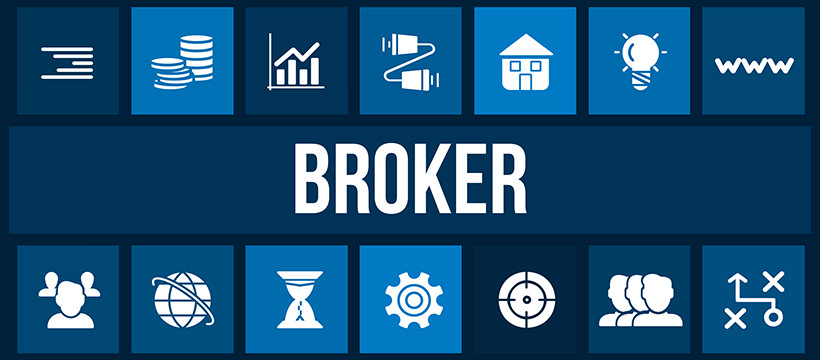Forex Brokers' Impact on Your Profits: What to Know Before Choosing
September 18, 2024

Choosing the right Forex broker is one of the most important aspects of achieving success in trading. A broker is not just an intermediary between you and the market, but can also directly influence your profits through commissions, spreads, leverage, and other factors. Moreover, the level of regulation and reliability of the broker determines the safety of your capital. In this article, we will examine in detail how Forex brokers affect your profits, what aspects to consider, and what to know before choosing a broker.
1. Types of Forex Brokers
Forex brokers can be classified into two main categories: Market Makers and ECN (Electronic Communication Network). Understanding the difference between these types of brokers is essential for making an informed decision.
Market Makers
Market Maker brokers, as the name suggests, "make the market" for their clients. In other words, when you make a trade, your Market Maker broker takes the other side of the transaction, effectively becoming your counterparty. This means that Market Makers set their own bid and ask prices and do not directly transmit orders to the interbank markets.
This practice can lead to a conflict of interest, as the broker has an incentive to keep the client in losing positions. However, Market Makers offer fixed spreads, which can be advantageous for traders in low volatility conditions.
Example: Imagine trading with a Market Maker broker that offers a fixed spread of 2 pips on EUR/USD. Even during high volatility events, such as the release of important economic data, the spread will remain unchanged. However, since the broker is your counterparty, they could profit from your losses if you were in a losing position.
ECN (Electronic Communication Network)
ECN brokers, on the other hand, directly connect traders to the interbank markets, allowing orders to be executed at the best available price. This system eliminates the conflict of interest that can arise with Market Makers, as the broker is no longer your counterparty. ECN brokers offer variable spreads, which tend to be lower than those of Market Makers, especially during periods of high liquidity.
However, ECN brokers charge a fixed commission for each trade. This commission structure can be advantageous for high-volume traders or those who prefer tighter spreads.
Example: An ECN broker might offer a variable spread on EUR/USD ranging from 0.1 pips during the London trading session (when liquidity is high) to 1 pip during low liquidity hours. However, on each trade, you will be charged a fixed commission, for example, 5 USD per lot traded.
2. Commissions and Spreads
Commissions and spreads are the two main sources of income for Forex brokers and can significantly impact your overall profits. For traders who make frequent trades, these costs need to be kept in check.
Fixed Spreads vs Variable Spreads
As mentioned earlier, brokers can offer fixed spreads or variable spreads. Fixed spreads remain constant, regardless of market conditions, which can be advantageous for traders operating in turbulent markets. On the other hand, variable spreads fluctuate based on market liquidity and can be much lower during periods of high liquidity.
Trading Commissions
ECN brokers charge a fixed commission per trade, usually a fixed percentage per lot traded. Traders who make large volumes of trades can benefit from tighter spreads, even though they pay a commission on each trade. On the other hand, Market Makers, who offer fixed spreads, generally do not charge additional commissions, as their profit comes from the spread.
3. Leverage and Margin
Leverage is one of the most powerful tools in Forex trading, but it can also be dangerous if not used properly. Leverage allows traders to control much larger positions compared to their available capital. This means that you can earn (or lose) significant sums with relatively small price movements.
Impact of Leverage on Profits
A broker offering high leverage, such as 1:500, allows traders to control up to 500 times their own capital. For example, with a deposit of 1,000 USD and a leverage of 1:500, you can open positions for a total value of up to 500,000 USD. However, this involves greater risk, as even small market movements can quickly erode your capital. Regulated brokers in the EU are limited to a maximum leverage of 1:30 for retail clients, a measure adopted to protect traders from excessive losses.
Example of leverage: With a leverage of 1:30, if you have a capital of 1,000 EUR, you can open a position with a maximum value of 30,000 EUR. For instance, you could open a position of 0.3 lots on EUR/USD, where 1 standard lot corresponds to 100,000 units of the base currency.
4. Regulation and Security
Choosing a regulated broker is crucial for the safety of your capital. Regulated Forex brokers must follow strict regulations that protect traders from fraudulent practices and ensure that their funds are managed securely.
Reputable Regulators
Some of the most respected regulatory bodies in the Forex world are the FCA in the United Kingdom, CySEC in Cyprus, ASIC in Australia, CFTC in the United States, BaFin in Germany, FSA in Japan, and FSCA in South Africa. These bodies require brokers to keep client funds separate from the company's operating funds and maintain high standards of transparency.
Importance of regulation: If your broker is regulated by one of these bodies, you can be sure that your funds are protected in case of broker insolvency and that all trading practices are overseen by an external authority.
5. Trading Platforms and Tools
A good trading platform is essential for executing timely and efficient trades. The most popular trading platforms are MetaTrader 4 and MetaTrader 5, which offer a wide range of technical analysis tools and the ability to use Expert Advisors (EAs) for automated trading. A valid alternative is cTrader, known for its intuitive interface and advanced algorithmic trading features, in addition to providing fast execution and high-quality analysis tools.
Platform Features
The best trading platforms offer advanced charting, customizable indicators, access to real-time economic news, and risk management tools, such as guaranteed stop-loss orders. Some brokers offer proprietary platforms that may include exclusive features or optimized design for mobile trading.
6. Customer Service and Support
High-quality customer service is essential for quickly resolving any issues or answering urgent questions. The best brokers offer 24/7 customer support in multiple languages and through various channels, such as live chat, email, and phone. Always check the effectiveness of your broker's customer service before depositing funds.
Conclusion
Choosing the right Forex broker can make a big difference in your overall profits. Carefully consider the broker's commission structure, leverage, spreads, and regulation before making a choice. Also, always check the quality of customer service and the trading platforms offered to ensure you have everything you need to succeed in Forex. A reliable and regulated broker will provide you with the tools and security you need to trade with confidence and success.




